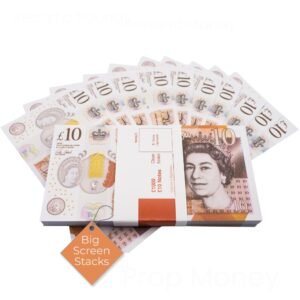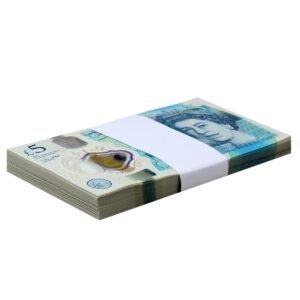euro counterfeit money
How to Spot Euro Counterfeit Money: A Comprehensive Guide
In today’s global economy, the Euro is one of the most widely used currencies, making it a prime target for counterfeiters. Counterfeit money not only undermines the economy but also poses a significant risk to businesses and individuals. Learning how to identify fake Euro banknotes is essential to protect yourself and your business. In this article, we’ll explore the key security features of Euro banknotes, provide tips on spotting counterfeit money, and discuss what to do if you encounter fake currency.
Why Counterfeit Euro Money is a Growing Concern
Counterfeiters are becoming increasingly sophisticated, using advanced technology to produce fake banknotes that can easily deceive the untrained eye. According to the European Central Bank (ECB), thousands of counterfeit Euro notes are removed from circulation annually. While the overall number of counterfeit notes is relatively low compared to the total in circulation, vigilance is crucial to avoid falling victim to fraud.
Key Security Features of Genuine Euro Banknotes
The Euro banknotes are designed with advanced security features that make them difficult to replicate. Here are the most important features to look for when verifying the authenticity of a Euro note:
- Hologram Stripe or Patch
Tilt the banknote, and you’ll see a holographic stripe or patch that changes colors and displays the Euro symbol (€) and the denomination of the note. - Watermark
Hold the banknote up to the light to see a faint image of the portrait featured on the note. The watermark should be visible from both sides. - Raised Printing
Genuine Euro notes have raised print on the main image, lettering, and large value numerals. Run your fingers over the surface to feel the texture. - Security Thread
A dark thread is embedded in the banknote. When held up to the light, the thread appears as a continuous line and displays the word “EURO” and the denomination. - Color-Shifting Ink
On the lower right corner of the banknote, the denomination number changes color when tilted from green to blue. - Microprinting
Tiny text is printed on various parts of the note, which appears sharp and clear under magnification but looks like a line to the naked eye. - UV Light Features
Under ultraviolet light, specific parts of the banknote will glow, such as the stars on the EU flag and the signature.
Tips to Spot Euro Counterfeit Money
- Feel the Texture
Genuine Euro banknotes are printed on high-quality cotton paper, giving them a unique texture. Counterfeit notes often feel smoother or thicker. - Check the Hologram
Fake notes may have a hologram that doesn’t change or appears dull. Always tilt the note to see if the hologram shifts. - Look for Blurry Details
Counterfeit notes often have blurry or poorly defined images, text, or microprinting. - Use a UV Light
If you’re handling large amounts of cash, investing in a UV light can help you quickly identify fake notes. - Compare with a Genuine Note
Keep a genuine Euro banknote on hand to compare suspicious notes side by side.
What to Do If You Encounter Counterfeit Money
If you suspect you’ve received a counterfeit Euro banknote, follow these steps:
- Do Not Return the Note
Politely refuse to accept the note and explain your concerns to the person handing it to you. - Retain the Note Safely
If you’ve already accepted the note, handle it as little as possible to preserve evidence. Place it in an envelope. - Contact Authorities
Report the incident to your local police or the national central bank. In the Eurozone, you can also contact the European Central Bank. - Provide Details
Share any information about where and how you received the counterfeit note to help authorities track down counterfeiters.
How Businesses Can Protect Themselves
Businesses that handle cash transactions are particularly vulnerable to counterfeit money. Here are some steps to minimize the risk:
- Train Employees
Educate your staff on how to identify counterfeit Euro banknotes using the security features mentioned above. - Use Detection Tools
Invest in counterfeit detection devices such as UV lights, magnifying glasses, or automated currency scanners. - Stay Updated
Regularly review updates from the European Central Bank about new security features or counterfeit trends.
Conclusion
Counterfeit Euro money is a serious issue that requires awareness and vigilance. By familiarizing yourself with the security features of genuine Euro banknotes and staying alert, you can protect yourself and your business from falling victim to fraud. Always remember to report any suspicious notes to the authorities to help combat counterfeit currency.
By following these tips, you can ensure that your transactions remain secure and contribute to the fight against counterfeit money. Stay informed, stay safe, and always verify the authenticity of your Euro banknotes.
Showing 1–9 of 10 results
-
Australian Dollar Counterfeit Bills
Buy 10 Pounds Counterfeit Bill Online
-
Australian Dollar Counterfeit Bills
Buy counterfeit £1 coins Online
Original price was: $18.00.$15.00Current price is: $15.00. -
Australian Dollar Counterfeit Bills
Buy counterfeit 100 euro bill Online
-
buy counterfeit money Online
Buy counterfeit 50 euro bill Online










